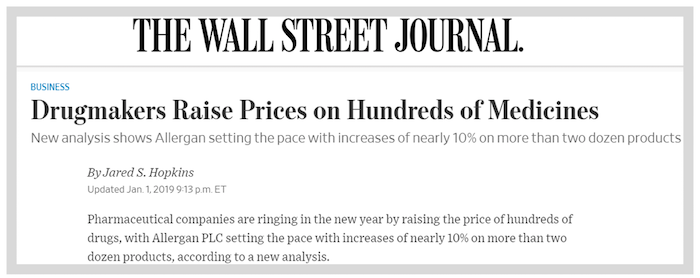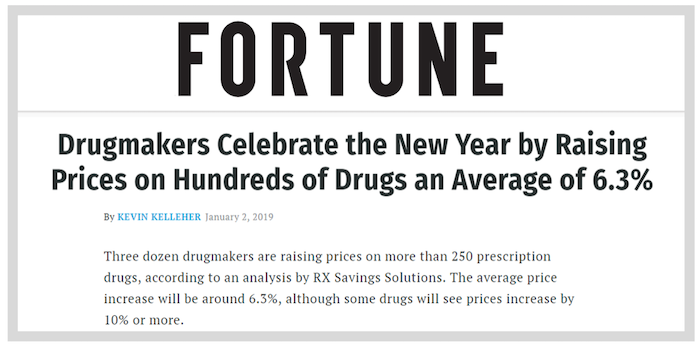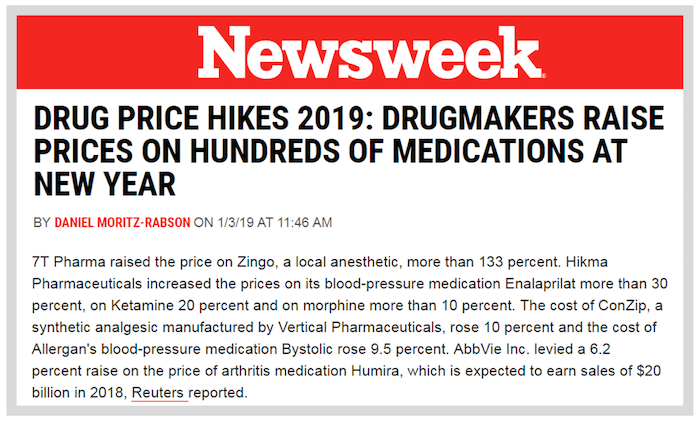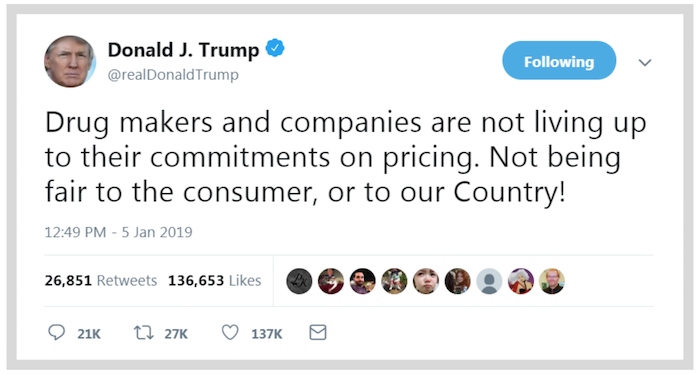Drug Makers Increase Prices for 2019
In 2019, some of the nation’s largest pharmaceutical companies, after holding prices steady for much of 2018, announced they are raising the cost on hundreds of drugs. You probably saw some of the headlines.

Source: https://www.wsj.com/articles/drugmakers-raise-prices-on-hundreds-of-medicines-11546389293

Source: http://fortune.com/2019/01/02/dozens-drugmakers-celebrate-new-year-raising-prices-hundreds-drugs/

Source: https://www.newsweek.com/drugmakers-raise-prices-hundreds-medications-1277433
That news was not well-received by President Trump, who quickly tweeted that drug makers were not living up to their commitments.

The President was referring to an agreement that he had reportedly reached with pharmaceutical manufacturers in mid-2018 to reduce drug prices, though the details on that agreement were never quite clear. As reported by Bloomberg, in May, President Trump stated, that within two weeks, drug makers would be announcing “voluntary, massive” cuts to the price of prescription medications in the United States. Those cuts never materialized. Although some drug makers did slow their price increases for a few months.
In response to the news of the 2019 price hikes, Democrats have promised to get to the bottom of it and determine whether the price increases are justified. As CNBC explains, Representative Elijah Cummings the Chairman of the House Oversight Committee, “sent letters to AbbVie, Amgen, AstraZeneca, Celgene, Eli Lilly, Johnson & Johnson, Mallinckrodt, Novartis, Novo Nordisk, Pfizer, Sanofi and Teva Pharmaceuticals seeking detailed information and documents about the companies' pricing practices.” Among the goals of the investigation, according to Cummings, “are to determine why drug companies are increasing prices so dramatically, how drug companies are using the proceeds, and what steps can be taken to reduce prescription drug prices.”’
Clearly, this is an issue that is very important to our clients as the cost of prescription drugs is one of the main contributors to the cost of health coverage. When prescription prices go up, so do our clients’ health insurance premiums. That’s one reason we expect prescription pricing to be a big issue in the upcoming election. It’s something that people of all political persuasions are concerned about, and it’s a problem they want the government to solve. We’ll see if that happens, but right now it’s not looking good.
If your clients need help with prescription drug costs, enroll them in a plan that offers substantial savings and hundreds of prescriptions available at no cost at all. TruScript is a trusted pharmacy partner providing an average of 67% reduced prices on prescriptions.

